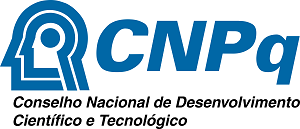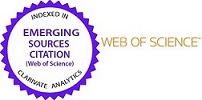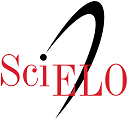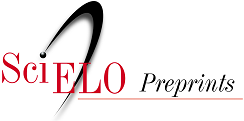O papel do debate on-line na formação de futuros especialistas (filólogos) e no aprimoramento de suas competências profissionais
DOI:
https://doi.org/10.25053/redufor.v8.e11399Palavras-chave:
Debates on-line, Debates Estudantis, Construindo Competências, Competências Profissionais, Educação a DistânciaResumo
A ciência pedagógica sempre se interessou pelo problema de identificar mecanismos eficazes para a construção das competências profissionais dos futuros especialistas. O desenvolvimento das telecomunicações fez com que as instituições de ensino enfrentassem o desafio de encontrar formas eficazes de interação entre os alunos. Os debates online entre estudantes são uma das formas que contribuem para o desenvolvimento de competências profissionais. Métodos: pesquisas e questionários, coleta e processamento remoto de informações, versão reduzida do Questionário Pessoal Multifatorial B5-10; Escala de Motivação Acadêmica; Escala Curta de Autocontrole; Diagnóstico da Modalidade Perceptiva Dominante; Matrizes Progressivas de Raven. A análise estatística foi realizada por meio do teste de Kolmogorov-Smirnov, coeficiente de correlação de Spearman e teste U de Mann-Whitney para avaliar a confiabilidade das diferenças entre grupos contrastantes. De acordo com os resultados da investigação, os alunos estão convencidos de que a participação em debates pode contribuir para o desenvolvimento de competências profissionais. O empenho dos estudantes foi apontado como o principal componente de motivação para a construção de competências profissionais. Verificou-se que a maioria dos estudantes avalia seus discursos durante os debates de forma mais elevada do que realmente são. Verificou-se que a participação dos estudantes em debates online contribui para a melhoria das competências profissionais. Mais pesquisas deveriam ter como objetivo estudar o papel dos debates na construção de competências profissionais entre estudantes de áreas específicas. Também é necessário desenvolver uma metodologia detalhada para introduzir o modelo de debate estudantil no processo educacional.
Downloads
Referências
ACUTO, Michele; LEFFEL, Benjamin. Understanding the global ecosystem of city networks. Urban Studies, v. 58, n. 9, p. 1758–1774, 2021. doi: 10.1177/0042098020929261. DOI: https://doi.org/10.1177/0042098020929261
ALLAM, Ahmad; KURI, Ashvin; AJAZ, Ali; AHMED, Saman; CARTER, Peter; KORSZUN, Ania. Critical Psychiatry Debates; A Neglected Tool in Undergraduate Medical Education. MedEdPublish, v. 10, n. 1, p. 55, 2021.doi: 10.15694/mep.2021.000055.1. DOI: https://doi.org/10.15694/mep.2021.000055.1
BELDA-MEDINA, Jose. Promoting inclusiveness, creativity and critical thinking through digital storytelling among EFL teacher candidates. International Journal of Inclusive Education, v. 26, n. 2, p. 109-123, 2022. doi: 10.1080/13603116.2021.2011440. DOI: https://doi.org/10.1080/13603116.2021.2011440
BLEAZBY, Jennifer; THORNTON, Simone; BURGH, Gilbert; GRAHAM, Mary. Responding to climate change ‘controversy’in schools: Philosophy for Children, place-responsive pedagogies & Critical Indigenous Pedagogy. Educational Philosophy and Theory, p. 1-13, 2022. doi: 10.1080/00131857.2022.2132933. DOI: https://doi.org/10.1080/00131857.2022.2132933
BLEAZBY, Jennifer. Fostering moral understanding, moral inquiry & moral habits through philosophy in schools: A Deweyian analysis of Australia’s Ethical Understanding curriculum. Journal of Curriculum Studies, v. 52, n. 1, p. 84–100, 2020. doi: 10.1080/00220272.2019.1650116. DOI: https://doi.org/10.1080/00220272.2019.1650116
CASSIDY, Claire. Philosophy for/with children and learning for sustainability. Philosophy with Children and Teacher Education: Global Perspectives on Critical, Creative and Caring Thinking. Routledge, 2022. Retrieved from https://books.google.com.ua/books?hl=en&lr=&id=xSCcEAAAQBAJ&oi=fnd&pg=PT192&ots=rtczWuY0cr&sig=ulwHHJjEUzfT_cqvbdSTJgqx7zw&redir_esc=y#v=onepage&q&f=false DOI: https://doi.org/10.4324/9781003212737-24
CHINN, Clark A.; BARZILAI, Sarit; DUNCAN, Ravit Golan. Disagreeing about how to know: The instructional value of explorations into knowing. Educational Psychologist, v. 55, n. 3, p. 167–180, 2020. doi: 10.1080/00461520.2020.1786387. DOI: https://doi.org/10.1080/00461520.2020.1786387
CLEARY, Yvonne; SLATTERY, Darina M.; FLAMMIA, Madelyn; MINACORI, Patricia. Developing strategies for success in a cross-disciplinary global virtual team project: Collaboration among student writers and translators. Journal of Technical Writing and Communication, v. 49, n. 3, p. 309–337, 2019. doi: 10.1177/0047281618775908. DOI: https://doi.org/10.1177/0047281618775908
CLEOVOULOU, Yiola; IZNARDO, Michelle; KAMANI, Farrah. An examination of equity pedagogy during program coherence building in teacher education. Teaching and Teacher Education, v. 120, p. 103866, 2022. doi: 10.1016/j.tate.2022.103866. DOI: https://doi.org/10.1016/j.tate.2022.103866
COOPER, Grant. Examining science education in chatgpt: An exploratory study of generative artificial intelligence. Journal of Science Education and Technology, v. 32, n. 3, p. 444-452, 2023. Available at: https://link.springer.com/article/10.1007/s10956-023-10039-y Accessed on: June 29, 2023. DOI: https://doi.org/10.1007/s10956-023-10039-y
DÍAZ, Andrea. Justicia social, reconocimiento y solidaridad. Sobre la actualidad de la pedagogía de Paulo Freire. Revista del IICE, n. 48, 2020. doi: 10.34096/iice.n48.10209. DOI: https://doi.org/10.34096/iice.n48.10209
DU FRESNE, Karl. Climate change teaching as dogmatic as religious indoctrination. Stuff, 2020. Available at: https://www.stuff.co.nz/dominion-post/comment/columnists/118953618/climate-change-teaching-as-dogmatic-as-religious-indoctrination Accessed on: June 29, 2023.
DUQUE, Isabel; ORTIZ, Catalina; SAMPER, Jota; MILLAN, Gynna. Mapping repertoires of collective action facing the Covid-19 pandemic in informal settlements in Latin American cities. Environment and Urbanization, v. 32, n. 2, p. 523–546, 2020. doi: 10.1177/0956247820944823. DOI: https://doi.org/10.1177/0956247820944823
ELICOR, Peter Paul. Philosophical inquiry with indigenous children: An attempt to integrate Indigenous forms of knowledge in philosophy for/with children. Childhood & Philosophy, v. 15, p. 1–22, 2019. doi: 10.12957/childphilo.2019.42659. DOI: https://doi.org/10.12957/childphilo.2019.42659
ELICOR, Peter Paul. I am keeping my cultural hat on: Exploring a ‘culture-enabling’ philosophy for/with children practice. Childhood & Philosophy, v. 17, p. 01–18, 2021. doi: 10.12957/childphilo.2021.54161. DOI: https://doi.org/10.12957/childphilo.2021.54161
EMAMI ZEYDI, Amir; GHAZANFARI, Mohammad Javad; SUHONEN, Riitta; ADIB-HAJBAGHERY, Mohsen; KARKHAH, Samad. Effective interventions for reducing moral distress in critical care nurses. Nursing Ethics, v. 29, n. 4, p. 1047-1065, 2022. doi: 10.1177/09697330211062982. DOI: https://doi.org/10.1177/09697330211062982
FACER, Keri; BUCHCZYK, Magdalena. Understanding Learning Cities as discursive, material and affective infrastructures. Oxford Review of Education, v. 45, n. 2, p. 168-187, 2019. doi: 10.1080/03054985.2018.1552581. DOI: https://doi.org/10.1080/03054985.2018.1552581
FRANCO, Isabel Duque; ORTIZ, Catalina. Medellín in the headlines: The role of the media in the dissemination of urban models. Cities, v. 96, p. 102431, 2020. doi: 10.1016/j.cities.2019.102431. DOI: https://doi.org/10.1016/j.cities.2019.102431
GOTT, Trisha; BAUER, Tamara; LONG, Kaitlin. Student Leadership Today, Professional Employment Tomorrow. New Directions for Student Leadership, v. 162, p. 91-109, 2019. doi: 10.1002/yd.20336. DOI: https://doi.org/10.1002/yd.20336
HAWKINS, W. Anthony; FULFORD, Michael; PHAN, Stephanie V. Using Debates as the Primary Pedagogy to Teach Critical Care in PharmD Curriculum Elective Course. Currents in Pharmacy Teaching and Learning, v. 11, n. 9, p. 943-948, 2019. doi: 10.1016/j.cptl.2019.05.010. DOI: https://doi.org/10.1016/j.cptl.2019.05.010
IRWIN, Ruth. Climate change and education. Educational Philosophy and Theory, v. 52, n. 5, p. 492–507, 2020. doi: 10.1080/00131857.2019.1642196. DOI: https://doi.org/10.1080/00131857.2019.1642196
JOHNSON, John A. Big-Five model. In: ZEIGLER-HILL, V.; SHACKELFORD T. K. (Eds.) Encyclopedia of Personality and Individual Differences. New York: Springer, 2017. p. 1-16. doi: 10.1007/978-3-319- 28099-8_1212-1. DOI: https://doi.org/10.1007/978-3-319-28099-8_1212-1
MARINONI, Giorgio; VAN’T LAND, Hilligje; JENSEN, Trine. The impact of COVID-19 on higher education around the world—IAU Global Survey report. International Association of Universities, 2020. Available at: https://www.iau-aiu.net/IMG/pdf/iau_covid19_and_he_survey_report_final_may_2020.pdf Accessed on: June 29, 2023.
ORTIZ, Catalina; MILLAN, Gynna. CRITICAL URBAN PEDAGOGY: Convites as Sites of Southern Urbanism, Solidarity Construction and Urban Learning. International Journal of Urban and Regional Research, v. 46, n. 5, p. 822-844, 2022. doi: 10.1111/1468-2427.13119. DOI: https://doi.org/10.1111/1468-2427.13119
SAAVEDRA, Jaime. Educational challenges and opportunities of the coronavirus (COVID-19) pandemic. World Bank, 2020. Available at: https://blogs.worldbank.org/education/educational-challenges-and-opportunities-covid-19-pandemic Accessed on: June 29, 2023.
SENYSHYN, Roxanna M. A first-year seminar course that supports the transition of international students to higher education and fosters the development of intercultural communication competence. Journal of Intercultural Communication Research, v. 48, n. 2, p. 150–170, 2019. doi: 10.1080/17475759.2019.1575892. DOI: https://doi.org/10.1080/17475759.2019.1575892
STIEDL, Olivia; STRAUB, Natalie. COVID-19 as an accelerator of digital collaboration. PWC, 2020. Available at: https://people-organisation.pwc.at/en/2020/04/covid-19-as-an-accelerator-of-digital-collaboration/ Accessed on: June 29, 2023.
WARDALE, Dorothy. Improving international student transition to professional employment. In: Sixth International Conference on Higher Education Advances. Universitat Politecnica de Valencia, 2020. p. 283-291. doi: 10.4995/HEAd20.2020.11039. DOI: https://doi.org/10.4995/HEAd20.2020.11039
ZDANEVYCH, Larysa; KRUTY, Kateryna; DEMIANENKO, Olha; PAKHALCHUK, Natalia; PERMINOVA, Lyudmyla; GARACHKOVSKA, Oksana. E-Learning Methods in Students’ Education. International Journal of Innovative Technology and Exploring Engineering, v. 8, n. 12, p. 251–256, 2019. doi: 10.35940/ijitee.L3621.1081219. DOI: https://doi.org/10.35940/ijitee.L3621.1081219
ZHU, Meina; BERRI, Sarah; ZHANG, Ke. Effective instructional strategies and technology use in blended learning: A case study. Education and Information Technologies, v. 26, p. 6143–6161, 2021. doi: 10.1007/s10639-021-10544-w. DOI: https://doi.org/10.1007/s10639-021-10544-w
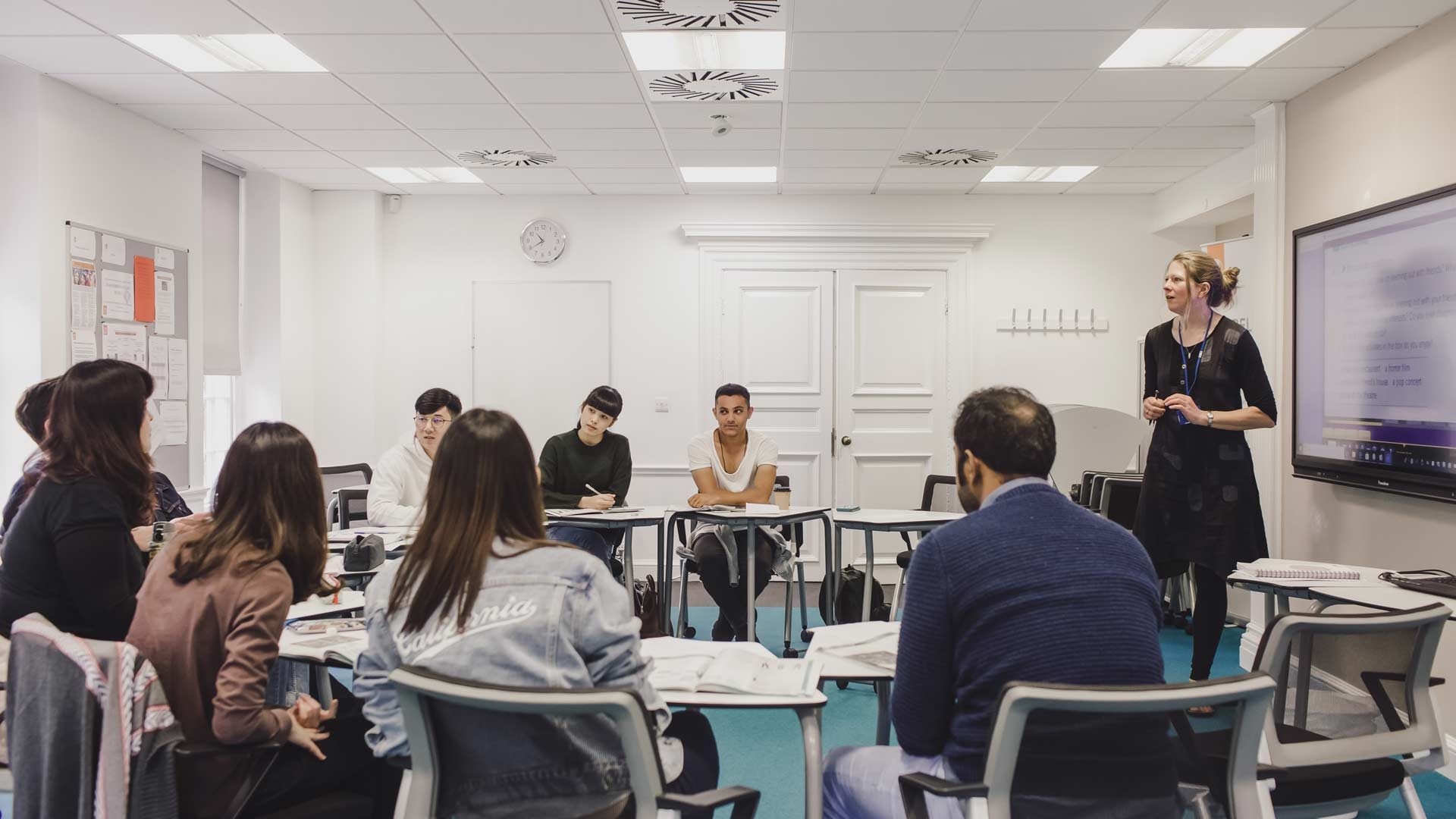
Downloads
Publicado
Como Citar
Edição
Seção
Licença
Copyright (c) 2023 Olha Sydorenko, Antonina Pak, Іryna Holubieva, Svitlana Cherniavska, Nataliia Pysarska

Este trabalho está licenciado sob uma licença Creative Commons Attribution 4.0 International License.
Os autores possuem direitos autorais dos seus textos:
A revista Educação & Formação permite ao autor os direitos de publicação, no entanto, recomenda um intervalo de dois anos para o caso de republicação.
Os nomes e endereços informados nesta revista serão usados exclusivamente para os serviços prestados por esta publicação, não sendo disponibilizados para outras finalidades ou a terceiros.





